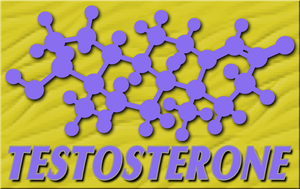Introduction to Primary Hypogonadism
Primary hypogonadism, also known as testicular failure, is a condition where the testes do not produce sufficient levels of testosterone, the primary male sex hormone. This medical condition can stem from genetic factors, physical damage, or certain medical treatments. For American males, the implications of this condition extend beyond physical health, significantly impacting their psychological well-being and self-esteem.
The Link Between Testosterone and Self-Esteem
Testosterone plays a crucial role in various bodily functions, including the development of male physical characteristics, muscle mass, and bone density. However, its influence extends to psychological aspects such as mood regulation and self-perception. Studies have shown that low testosterone levels can lead to decreased energy, mood swings, and a diminished sense of well-being, all of which can erode a man's self-esteem.
Impact on Physical Appearance and Self-Perception
One of the most visible effects of primary hypogonadism is changes in physical appearance, such as reduced muscle mass and increased body fat. For many American men, societal pressures to maintain a certain physique can exacerbate feelings of inadequacy and low self-worth. The inability to meet these often-unrealistic standards can lead to a negative self-image, further compounded by the physical symptoms of the condition.
Psychological and Emotional Consequences
The emotional toll of primary hypogonadism can be profound. Men may experience depression, anxiety, and a lack of motivation, all of which can contribute to a cycle of low self-esteem. The psychological impact is not merely a byproduct of the physical symptoms but can also be a direct result of the hormonal imbalance itself. This dual effect can make it challenging for men to break free from the negative self-perception that often accompanies the condition.
Social and Relational Dynamics
Primary hypogonadism can also affect social interactions and relationships. Men may feel less confident in social settings, leading to withdrawal and isolation. In romantic relationships, the condition can lead to decreased libido and sexual dysfunction, which can strain partnerships and further diminish self-esteem. The fear of judgment or rejection can prevent men from seeking the support they need, perpetuating a cycle of emotional distress.
Seeking Treatment and Support
Fortunately, primary hypogonadism is treatable, and early intervention can significantly improve both physical and psychological outcomes. Hormone replacement therapy (HRT) is a common treatment that can help restore testosterone levels to normal, alleviating many of the symptoms associated with the condition. Additionally, psychological counseling and support groups can provide men with the tools to rebuild their self-esteem and cope with the emotional challenges of the condition.
The Role of Awareness and Education
Raising awareness about primary hypogonadism is crucial in helping American men understand and address the condition. Education can empower men to recognize the symptoms early and seek appropriate medical care. It can also help to destigmatize the condition, encouraging men to discuss their experiences openly and seek support without fear of judgment.
Conclusion: A Call to Action
Primary hypogonadism presents a significant challenge to American men's self-esteem, affecting their physical health, emotional well-being, and social interactions. By understanding the multifaceted impact of this condition, we can better support affected individuals in seeking treatment and rebuilding their confidence. It is essential for healthcare providers, families, and communities to work together to provide comprehensive care and support, ensuring that men with primary hypogonadism can lead fulfilling and confident lives.
Contact Us Today For A Free Consultation

- Primary Hypogonadism: Understanding, Overcoming Stigma, and Seeking Support in American Males [Last Updated On: February 21st, 2025] [Originally Added On: February 21st, 2025]
- Exercise and Nutrition: Managing Primary Hypogonadism in American Males [Last Updated On: March 17th, 2025] [Originally Added On: March 17th, 2025]
- Primary Hypogonadism: Symptoms, Diagnosis, and Treatment Options for American Men [Last Updated On: March 17th, 2025] [Originally Added On: March 17th, 2025]
- Obesity and Primary Hypogonadism: A Vicious Cycle in American Men [Last Updated On: March 18th, 2025] [Originally Added On: March 18th, 2025]
- Primary Hypogonadism: Diagnosis, Management, and Advocacy for American Men's Health [Last Updated On: March 19th, 2025] [Originally Added On: March 19th, 2025]
- Primary Hypogonadism in Aging Men: Symptoms, Treatment, and Lifestyle Management [Last Updated On: March 19th, 2025] [Originally Added On: March 19th, 2025]
- Primary Hypogonadism: Navigating Challenges with Robust Support Networks [Last Updated On: March 19th, 2025] [Originally Added On: March 19th, 2025]
- Navigating the Emotional Journey of Primary Hypogonadism in American Males [Last Updated On: March 20th, 2025] [Originally Added On: March 20th, 2025]
- Managing Primary Hypogonadism: Diet and Nutrition Strategies for American Males [Last Updated On: March 21st, 2025] [Originally Added On: March 21st, 2025]
- Primary Hypogonadism: Impact on Work and Strategies for Enhanced Productivity in American Men [Last Updated On: March 21st, 2025] [Originally Added On: March 21st, 2025]
- Primary Hypogonadism: Current Treatments and Future Innovations for American Males [Last Updated On: March 21st, 2025] [Originally Added On: March 21st, 2025]
- Financial Impact of Primary Hypogonadism on American Men: Costs and Planning [Last Updated On: March 21st, 2025] [Originally Added On: March 21st, 2025]
- Primary Hypogonadism in American Men: Testosterone's Role and Replacement Therapy Benefits [Last Updated On: March 22nd, 2025] [Originally Added On: March 22nd, 2025]
- Primary Hypogonadism and Diabetes: Dual Challenge in American Men's Health Management [Last Updated On: March 22nd, 2025] [Originally Added On: March 22nd, 2025]
- Innovative Treatments for Primary Hypogonadism in American Men: A Comprehensive Overview [Last Updated On: March 22nd, 2025] [Originally Added On: March 22nd, 2025]
- Primary Hypogonadism: Impacts on Body Image and Masculinity in American Men [Last Updated On: March 23rd, 2025] [Originally Added On: March 23rd, 2025]
- Primary Hypogonadism in American Men: Diagnosis, Treatment, and Holistic Management [Last Updated On: March 23rd, 2025] [Originally Added On: March 23rd, 2025]
- Primary Hypogonadism in American Men: Diagnosis, Challenges, and Management Strategies [Last Updated On: March 23rd, 2025] [Originally Added On: March 23rd, 2025]
- American Males' Resilience and Mental Fortitude in Managing Primary Hypogonadism [Last Updated On: March 23rd, 2025] [Originally Added On: March 23rd, 2025]
- Community Support Enhances Life for Men with Primary Hypogonadism [Last Updated On: March 23rd, 2025] [Originally Added On: March 23rd, 2025]
- Primary Hypogonadism: Symptoms, Diagnosis, and Navigating U.S. Healthcare [Last Updated On: March 24th, 2025] [Originally Added On: March 24th, 2025]
- Family Support Crucial for American Males with Primary Hypogonadism [Last Updated On: March 24th, 2025] [Originally Added On: March 24th, 2025]
- Primary Hypogonadism: Causes, Symptoms, and Treatment in American Men [Last Updated On: March 24th, 2025] [Originally Added On: March 24th, 2025]
- Primary Hypogonadism in American Men: Holistic Management and Treatment Strategies [Last Updated On: March 24th, 2025] [Originally Added On: March 24th, 2025]
- Primary Hypogonadism's Impact on Muscle Mass in American Males: Diagnosis and Management [Last Updated On: March 24th, 2025] [Originally Added On: March 24th, 2025]
- Primary Hypogonadism: Impact on Sleep Quality and Health in American Men [Last Updated On: March 24th, 2025] [Originally Added On: March 24th, 2025]
- Primary Hypogonadism: Integrating Mental Health for Holistic Care in American Men [Last Updated On: March 24th, 2025] [Originally Added On: March 24th, 2025]
- Primary Hypogonadism in American Males: Causes, Impacts, and Management Strategies [Last Updated On: March 25th, 2025] [Originally Added On: March 25th, 2025]
- Primary Hypogonadism: Understanding, Managing, and Supporting American Males [Last Updated On: March 25th, 2025] [Originally Added On: March 25th, 2025]
- Primary Hypogonadism in American Males: Causes, Effects, and Management Strategies [Last Updated On: March 25th, 2025] [Originally Added On: March 25th, 2025]
- Primary Hypogonadism in American Males: Importance of Regular Medical Check-ups [Last Updated On: March 26th, 2025] [Originally Added On: March 26th, 2025]
- Primary Hypogonadism's Impact on Social Life and Relationships in American Men [Last Updated On: March 26th, 2025] [Originally Added On: March 26th, 2025]
- Primary Hypogonadism in American Men: Diagnosis, Treatment, and Support [Last Updated On: March 26th, 2025] [Originally Added On: March 26th, 2025]
- Peer Support's Vital Role in Managing Primary Hypogonadism in American Men [Last Updated On: March 26th, 2025] [Originally Added On: March 26th, 2025]
- Genetic Testing for Primary Hypogonadism: Diagnosis and Management in American Males [Last Updated On: March 26th, 2025] [Originally Added On: March 26th, 2025]
- Primary Hypogonadism in American Men: Understanding, Impact, and Advocacy for Better Care [Last Updated On: March 26th, 2025] [Originally Added On: March 26th, 2025]
- Primary Hypogonadism in American Men: Diagnosis, Challenges, and Multidisciplinary Management [Last Updated On: March 26th, 2025] [Originally Added On: March 26th, 2025]
- Primary Hypogonadism: Variability, Impact, and Management in American Men [Last Updated On: March 26th, 2025] [Originally Added On: March 26th, 2025]
- Primary Hypogonadism's Impact on Career Aspirations in American Males: Insights and Strategies [Last Updated On: March 26th, 2025] [Originally Added On: March 26th, 2025]
- Primary Hypogonadism in American Males: Awareness, Impact, and Urgent Action Needed [Last Updated On: March 26th, 2025] [Originally Added On: March 26th, 2025]
- Primary Hypogonadism's Impact on Physical Activity in American Males [Last Updated On: March 26th, 2025] [Originally Added On: March 26th, 2025]
- Primary Hypogonadism: TRT Benefits, Risks, and Management Strategies [Last Updated On: March 27th, 2025] [Originally Added On: March 27th, 2025]
- Primary Hypogonadism: Understanding, Impact, and Early Intervention for American Men [Last Updated On: March 27th, 2025] [Originally Added On: March 27th, 2025]
- Managing Primary Hypogonadism: Treatment, Healthcare, and Insurance Navigation in the U.S. [Last Updated On: March 27th, 2025] [Originally Added On: March 27th, 2025]
- Nutritionists' Vital Role in Managing Primary Hypogonadism in American Males [Last Updated On: March 27th, 2025] [Originally Added On: March 27th, 2025]
- Primary Hypogonadism: Emotional Impacts and Holistic Management Strategies for American Males [Last Updated On: March 27th, 2025] [Originally Added On: March 27th, 2025]
- Primary Hypogonadism: Symptoms, Diagnosis, and Treatment Options for American Men [Last Updated On: March 28th, 2025] [Originally Added On: March 28th, 2025]
- Exercise Physiology's Crucial Role in Managing Primary Hypogonadism in American Males [Last Updated On: March 28th, 2025] [Originally Added On: March 28th, 2025]
- Primary Hypogonadism: Addressing Emotional Support Needs in American Men [Last Updated On: March 28th, 2025] [Originally Added On: March 28th, 2025]
- Primary Hypogonadism in American Men: Symptoms, Management, and Continuous Monitoring [Last Updated On: March 29th, 2025] [Originally Added On: March 29th, 2025]
- Primary Hypogonadism: Impacts and Family Planning Strategies for American Males [Last Updated On: March 31st, 2025] [Originally Added On: March 31st, 2025]
- Endocrinologists' Vital Role in Managing Primary Hypogonadism in American Males [Last Updated On: April 1st, 2025] [Originally Added On: April 1st, 2025]
- Overcoming Psychological Barriers to Primary Hypogonadism Treatment in American Males [Last Updated On: April 3rd, 2025] [Originally Added On: April 3rd, 2025]
- Primary Hypogonadism: Managing Stress and Anxiety in American Men [Last Updated On: April 3rd, 2025] [Originally Added On: April 3rd, 2025]
- Primary Hypogonadism in American Men: Symptoms, Prevalence, and Lifestyle Management Strategies [Last Updated On: April 4th, 2025] [Originally Added On: April 4th, 2025]
- Primary Hypogonadism: Social Impacts on American Males' Relationships and Professional Life [Last Updated On: April 6th, 2025] [Originally Added On: April 6th, 2025]
- Managing Primary Hypogonadism: Financial Assistance and Support Options for American Men [Last Updated On: April 6th, 2025] [Originally Added On: April 6th, 2025]
- Primary Hypogonadism in American Males: The Vital Role of Patient Education [Last Updated On: April 8th, 2025] [Originally Added On: April 8th, 2025]
- Primary Hypogonadism in American Males: Challenges and Strategies for Treatment Adherence [Last Updated On: April 9th, 2025] [Originally Added On: April 9th, 2025]
- Managing Primary Hypogonadism: Symptoms, Diagnosis, and Holistic Treatment for American Men [Last Updated On: April 9th, 2025] [Originally Added On: April 9th, 2025]
- Technology's Role in Managing Primary Hypogonadism for American Men [Last Updated On: April 9th, 2025] [Originally Added On: April 9th, 2025]
- Support Groups: Vital for Managing Primary Hypogonadism in American Males [Last Updated On: April 9th, 2025] [Originally Added On: April 9th, 2025]
- Managing Primary Hypogonadism: Symptoms, Treatment, and Healthcare Navigation for American Men [Last Updated On: April 10th, 2025] [Originally Added On: April 10th, 2025]
- Primary Hypogonadism in American Men: Diagnosis, Treatment, and Multidisciplinary Care [Last Updated On: April 12th, 2025] [Originally Added On: April 12th, 2025]
- Primary Hypogonadism: Impacts on Health, Emotions, and Daily Life in American Males [Last Updated On: April 12th, 2025] [Originally Added On: April 12th, 2025]
- Mental Health Apps: Support for American Males with Primary Hypogonadism [Last Updated On: April 14th, 2025] [Originally Added On: April 14th, 2025]
- Primary Hypogonadism: Diagnosis, Treatment, and Management Strategies for American Men [Last Updated On: April 14th, 2025] [Originally Added On: April 14th, 2025]
- Primary Hypogonadism: Impact, Advocacy, and Workplace Support for American Men [Last Updated On: April 16th, 2025] [Originally Added On: April 16th, 2025]
- Managing Primary Hypogonadism: Importance of Regular Follow-ups for American Men [Last Updated On: April 17th, 2025] [Originally Added On: April 17th, 2025]
- Dietitians' Role in Managing Primary Hypogonadism with Tailored Nutrition Plans for American Males [Last Updated On: April 17th, 2025] [Originally Added On: April 17th, 2025]
- Primary Hypogonadism: Overcoming Travel Challenges for American Males [Last Updated On: April 17th, 2025] [Originally Added On: April 17th, 2025]
- Primary Hypogonadism's Impact on American Men's Hobbies and Well-being [Last Updated On: April 17th, 2025] [Originally Added On: April 17th, 2025]
- Physical Therapy's Role in Managing Primary Hypogonadism in American Males [Last Updated On: April 17th, 2025] [Originally Added On: April 17th, 2025]
- Managing Primary Hypogonadism: A Comprehensive Healthcare Team Approach for American Men [Last Updated On: April 18th, 2025] [Originally Added On: April 18th, 2025]
- Managing Primary Hypogonadism: Symptoms, Diagnosis, and Treatment for American Men [Last Updated On: April 19th, 2025] [Originally Added On: April 19th, 2025]
- Primary Hypogonadism in American Men: Personalized Care and Treatment Strategies [Last Updated On: April 19th, 2025] [Originally Added On: April 19th, 2025]
- Primary Hypogonadism's Impact on Educational Achievement in American Males [Last Updated On: April 20th, 2025] [Originally Added On: April 20th, 2025]
Word Count: 550





















